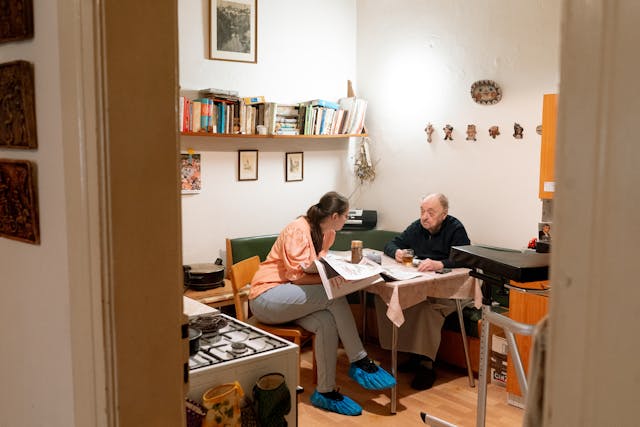In a care home, the overarching goal is to create an atmosphere where residents feel safe, cared for, and respected. Providing comfort and support is not a one-size-fits-all solution; it requires attention to detail, a deep understanding of individual needs, and a compassionate approach. A high standard of care can greatly improve residents’ lives, making it essential to prioritize their comfort, both physically and emotionally.
Creating a Home-Like Atmosphere
For many residents, a care home is a significant change in their daily life. The transition from living independently to living in a care facility can be challenging. One of the most effective ways to help them feel comfortable is by creating an environment that feels like home. This includes elements like personalized décor, cozy spaces, and homely touches that reflect their personality. Involving residents in decisions about their environment, from choosing paint colors to selecting furniture, can empower them and help reduce feelings of anxiety or alienation. If you’re looking for a care home in Mansfield, Baily House offers a supportive and comfortable environment for all residents.
Fostering a Culture of Respect and Dignity
Respect and dignity are vital aspects of providing comfort in any care setting. Every resident deserves to feel valued as an individual, regardless of their age or physical limitations. Care homes can offer emotional support by encouraging residents to express their preferences and honoring their choices. Whether it’s allowing them to make decisions about their care or simply respecting their personal space, these small actions go a long way in preserving their sense of dignity and promoting a positive experience.
A Focus on Holistic Health
True comfort in a care home comes from more than just physical care; it requires a holistic approach that supports all aspects of a person’s health. This includes mental, emotional, and social well-being, which are equally important to overall comfort. Programs that encourage cognitive stimulation, social engagement, and physical exercise are key components of a well-rounded care strategy. Memory-enhancing activities, group discussions, and movement therapies can help residents stay mentally active and engaged, improving their quality of life and fostering a deeper sense of comfort.
Building Strong Relationships with Staff
The relationships between care home staff and residents play a central role in ensuring comfort and support. Caring, well-trained staff who take the time to understand the personal needs of each resident can create a trusting environment. Residents often feel more comfortable when they know they can rely on familiar faces for support. By developing meaningful connections with residents, caregivers can better anticipate their needs, whether that involves providing assistance with daily activities or offering an empathetic ear during difficult moments.
Nurturing Emotional Connections Through Activities
A vital aspect of support in care homes is facilitating emotional connections. Activities that bring people together help build friendships and a sense of community. Whether it’s through shared hobbies like gardening, group outings, or even simple conversation, these interactions foster a sense of belonging and comfort. Regular social gatherings, such as movie nights, themed events, or game afternoons, also offer opportunities for residents to interact with one another and develop emotional bonds that can alleviate feelings of loneliness.
Ensuring Access to Specialized Care
Providing support means ensuring that residents have access to specialized care when needed. Many individuals entering care homes have complex medical needs that require specialized attention. From managing chronic conditions to addressing advanced mobility challenges, ensuring that residents have access to the right medical professionals is essential for their well-being. The comfort of knowing they are receiving the proper care can help alleviate anxiety and foster trust in the care home environment.
In Conclusion
Providing comfort and support in a care home involves a multifaceted approach that considers the physical, emotional, and social needs of each resident. By focusing on creating a home-like atmosphere, fostering a culture of respect, and providing opportunities for personal engagement, care homes can offer a higher standard of care. When residents feel valued and supported, their overall well-being is enhanced, leading to a more fulfilling and dignified experience in their later years.


